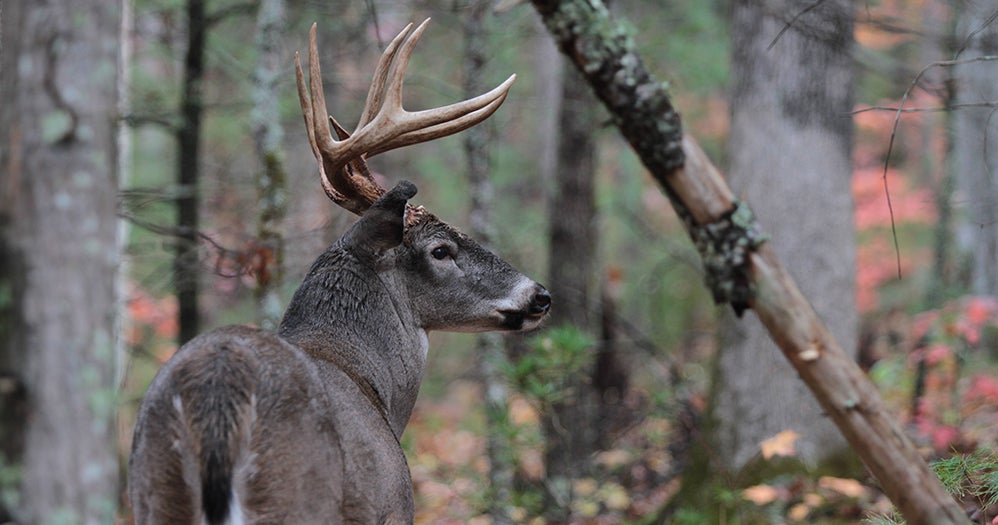CWD Update: Mississippi reports three new positives, samples needed
Published 1:19 pm Tuesday, December 5, 2023

- MDWFP IMAGE
JACKSON — Mississippi Department of Wildlife, Fisheries and Parks reported three new positive detections of Chronic Wasting Disease in Benton County Tuesday morning. The newly recorded positives make 227 positives since first detection in February 2018 and the 20th positive this year.
Chronic Wasting Disease is 100 percent always fatal to deer and other members of the cervid family. CWD is caused by an infectious prion which eats away at neurologic tissue.
MDWFP reports 2,104 samples have been submitted for Chronic Wasting Disease testing since the opening day of September Velvet Season.
Benton County first detected CWD positives in 2019 and have since seen positives and submitted samples increase each year. While Lincoln County has no detections of CWD it also falls woefully short of the needed samples to determine if the disease is on the landscape.
MDWFP’s deer program sets a goal of 300 samples for each county each year to hopefully find the disease at a 5 percent prevalence rate or lower. Lincoln County hunters have submitted 582 samples since 2018.
Harrison County’s newly detected positive shows why low sampled counties could still have the disease on the landscape without anyone knowing it. Hunter harvested samples are needed to detect the disease and implement mitigation strategies before it is too late.
Louisiana Deer Program Manager Johnathan Bordelon said they have not detected any new positives in Tensas Parish but are waiting on results from the control area there. He said the discovery of CWD in Harrison County is concerning.
Louisiana will not take any formal action following the positive in Harrison County but will have heightened concern about the disease in Southeastern Louisiana.
“Parishes in southeastern Louisiana are generally lower harvest parishes with lower surveillance numbers. Efforts to obtain or reach sample goals in that part of the state is being stressed,” Bordelon said. “The discovery in Harrison County is an example of the unpredictability associated with detections. The disease is sometimes detected where least expected and sheds light on the importance of searching.”
CWD samples can be dropped off at self serve coolers around the state or participating taxidermists. The closest drop-off cooler to Lincoln County is in Hazlehurst at the Mississippi State Extension Service Office there. Lincoln County’s participating taxidermists are Brent Opdyke, Allen Morgan and George Wilson and their information can be found on the MDWFP CWD page.
It is likely the topic of implementing a new CWD management zone in Harrison County could come up in the next MDWFP commission meeting on December 14. An agenda for the meeting will likely be released later this week. Check back for updates prior to the meeting.
Why is CWD a concern?
Chronic Wasting Disease prions are shed into the environment in the bodily fluids of infected deer. Healthy deer can become infected by indirect contact with these prions in the soil or direct contact with an infected deer. Prions persist in the environment for a long period of time long after a CWD infected deer dies.
Deer do not show symptoms of CWD until the later stages of the disease which could be 12 to 18 months after they become infected which is why it is important for deer to be tested. As long as states keep prevalence rates low they can mitigate the spread of the disease and maintain a healthy deer population.
The Center for Disease Control reports there are no CWD cases in humans from eating positive deer meat but it doesn’t mean the disease can’t spread to humans. It is best to avoid eating meat of a CWD positive deer.
Arkansas Game and Fish Commission State Veterinarian Jennifer Ballard presented an in depth look into the disease at a MDWFP commission meeting last year.
Preliminary research in Arkansas shows CWD positive deer are most likely to die directly from Chronic Wasting Disease as opposed to other causes of death. CWD is also impacting the recruitment of fawns in Arkansas.





